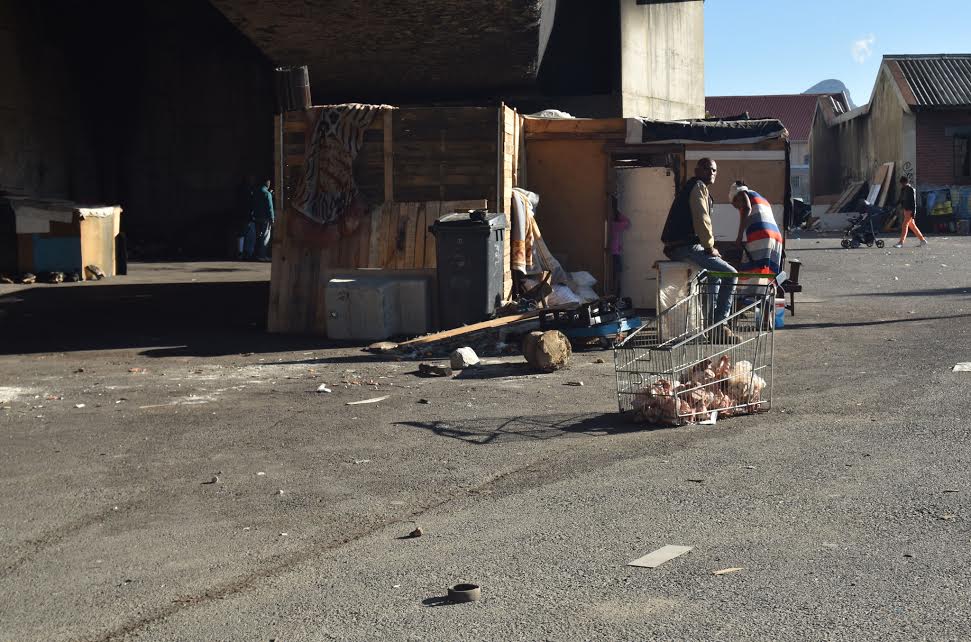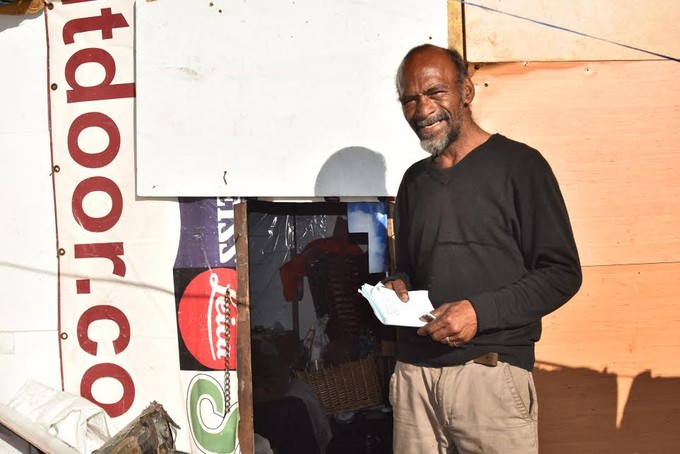Salt River man’s daily battle “to put a candle and bread on the table”
Residents of settlement under bridge collect cardboard and plastic for recycling
Former District Six resident Youssouf Blou lives on vacant land near Salt River station. To put “a candle and bread on the table”, he and the other members of the 20 or so households in the settlement collect cardboard and plastic for recycling.
The “Under the Bridge” settlement is on a piece of land previously owned by Transnet which was transferred to the City of Cape Town in 2011. There is no water, electricity or sanitation. Residents have to walk to the nearby “The Stables” settlement in Bromwell Street for water.
Some families live in the burned-out ruin of a building, which they say used to be a railway police station, and some in shacks under a traffic bridge. Residents say the first families started living here just before 1994.
Blou has been living there for 10 years. He was a child when his family was forced to leave District Six in the 1960s, moving to Walmer Estate for a while, then to Salt River and Bonteheuwel, suffering several evictions because they could not afford the rent. After losing his mother, Blou worked on a ship for a period, but eventually found himself on the street.
According to Councillor Benedicta van Minnen, Mayoral Committee Member for Human Settlements, the City is in the process of assessing future prospects for the land. “ In the meantime, the City is looking into the provision of basic services, such as access to water and sanitation, for the persons who are living on this land.”

The City has been talking to the residents of “Under the Bridge” and will keep them informed, says van Minnen.
Residents have been offered alternative accommodation in Blikkiesdorp, which they have refused, she says.
Blikkiesdorp is 30 kilometres away. Blou says though he would like to have a house he is afraid of going to Blikkiesdorp. He says he knows Woodstock residents who were relocated there, and who were healthy people before they left, but ended up getting TB.
If the area is developed, it is unlikely that the residents of “Under the Bridge” will be able to pay even low rents from the income from their recycling activities. Blou says on a good day he makes R150 to R180, and on bad day, R60 to R70, working from 6 in the morning to 7 in the evening. Most low-income housing projects require a regular income of at least R2,500.
Next: Why the Hawks don’t have a case against Gordhan
Previous: The night run: how Zimbabwean traders are dodging suffocating import restrictions
© 2016 GroundUp. 
This article is licensed under a Creative Commons Attribution-NoDerivatives 4.0 International License.
You may republish this article, so long as you credit the authors and GroundUp, and do not change the text. Please include a link back to the original article.



